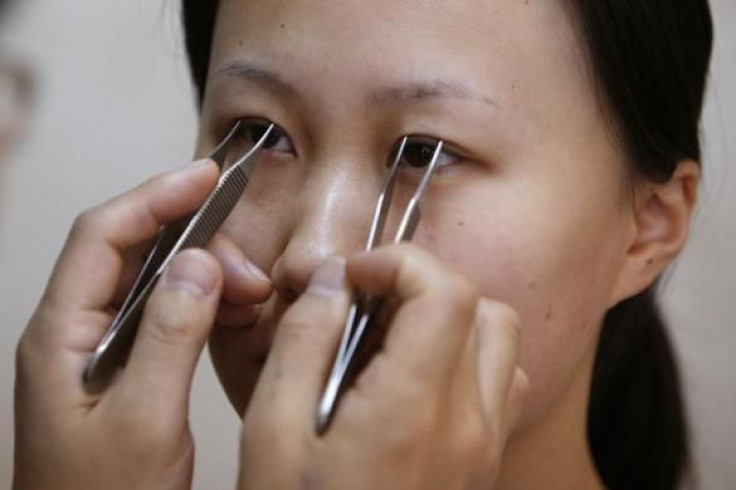China's Plastic Surgery Culture: Going Under The Knife In Hopes Of Getting A Job

Job seekers the world over always want to put their best face forward. But for increasing numbers of women in China, that notion has become quite literal. The culture's common conception of beauty, combined with gender discrimination in the workplace, has driven many women to go under the knife.
According to the International Society of Aesthetic Plastic Surgery, China has become the world’s third-largest market for cosmetic surgery, following the United States and Brazil, with more than 2 million operations annually and the number of operations doubling every year, Ma Xiaowei, China's vice health minister said at a conference in 2011 organized by the national health ministry. At one of the country’s largest and most popular cosmetic surgery hospitals, a nose job would cost around the equivalent of $2,900. Though a $2,900 investment on a new nose is quite an investment, particularly for migrant workers who often earn as little as $40 a month, many women are still saving up.
A wave of plastic surgery culture has hit China as women from across socio-economic classes invest in surgery in hopes that it will improve their careers as well as their social lives. “Your nose is too flat,” a plastic surgery consultant in the southern Chinese city of Shenzhen told Joanna Chiu of The Daily Beast. “A well-shaped nose commands respect. Businessmen come in to get more-prominent noses. And ladies have better chances in both career and love after their operations.”
“The dramatic economic, cultural and political changes in China have produced immense anxiety experienced by women, which stimulates the belief that beauty is capital,” Wen Hua, an anthropologist and author of “Buying Beauty: Cosmetic Surgery in China," said in the report. Wen’s book found that attitudes in China about plastic surgery are much more accepting than attitudes in North America, and that cosmetic surgery is most popular among women struggling to find employment. Wen said that women continue to be discriminated against in the workplace, with employers often paying attention to physical attributes and many placing particular importance on youth. The Daily Beast found that nearly 90 percent of job listings in 2003 were open only to female applicants younger than 30.
Women who do not meet a minimum height requirement, which is usually 1.58 meters or about 5 feet 2 inches, are often rejected from government positions. This prompted a surge of leg-lengthening procedures where bones in the lower legs are broken and re-set with additional steel pins. The controversial procedure has many complications, and some botched jobs have left people permanently disabled. While most dangerous and controversial procedures have been banned by China’s Ministry of Health, a handful of private surgeons are still reportedly willing to go through with the operation.
The race against time is something that most women are battling. “I wouldn’t have been hired if I had been an ugly duckling,” Liu, a 28-year-old administrative assistant at a financial company, said. Liu has received double-eyelid surgery, a popular procedure among Asian women that involves making incisions on the eyelid to make them appear larger, as well as rhinoplasty.
Looking forward, Liu is concerned that she might lose her job as she gets older, saying that despite her background in business, appearance is as important as education.
“It’s just like applying makeup; everybody wants to enhance their beauty. A woman especially needs to work to maintain her appearance as she gets older.”
© Copyright IBTimes 2024. All rights reserved.












